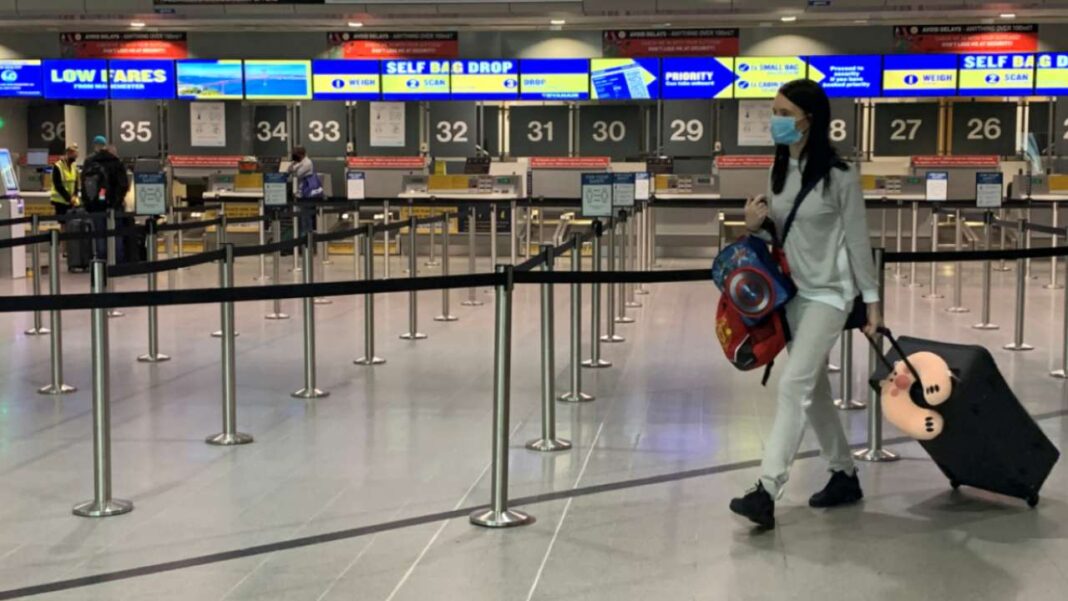After a long travel ban that forced several family members apart and stunted tourism in the country, the Biden Administration on Monday finally decided to reopen its borders to international travelers from across the globe if they are fully vaccinated against COVID-19.
The international travel ban in the United States lasted a total of 20 months. The travel ban was imposed by the then-US president Donald Trump in view of the severity of the COVID-19 pandemic in the country. The ban was upheld by the Joe Biden administration and was widely criticized by citizens.
The US borders were shut off for international travelers from March 2020, which garnered a lot of backlash from Europe and US neighbors Canada and Mexico. The travel restrictions imposed in view of the COVID-19 pandemic brought many people living outside of the country personal and financial loss.
Now, visitors can fly into the U.S. with proof of full Covid-19 vaccination, though there are exemptions for travelers under age 18 and passengers from countries with low vaccination availability.
Here is what you need to know about international travel to the U.S. starting Nov. 8:
Proof of vaccination
Under the new rules, inbound non-citizens will have to show proof that they are fully vaccinated against Covid-19 before they fly into the U.S. That means the second of a two-dose vaccine must have been completed two weeks prior to departure. Documentation can be shown as a paper certificate, a photo of the document or a digitized version. It will be reviewed by airline personnel.
Accepted vaccines are those approved or authorized by the Food and Drug Administration and those listed for use by the World Health Organization: Johnson & Johnson, Pfizer/BioNTech, Moderna, AstraZeneca, Covishield, Sinopharm and Sinovac.
Covid tests
The U.S. will also require proof of a negative Covid test from within the past three days for all vaccinated travelers. The country has required that since January for all arrivals, including U.S. citizens.
If a traveler is not vaccinated, including a U.S. citizen, the Covid test must have been taken from within one day of departure.
Both rapid antigen and PCR test results will be accepted.
Minors and other vaccine exemptions
The U.S. has outlined a number of exemptions to the new rules. Those include international travelers under the age of 18, as some countries haven’t yet authorized vaccines for children or have low vaccine availability.
International visitors over the age of 2, traveling with vaccinated adults must still show proof of a negative Covid test taken within three days of departure. If they are traveling unaccompanied they must show proof of a test taken within one day.
The U.S. is also exempting vaccination requirements for visitors from 50 countries that have low vaccine availability and vaccination rates, including much of Africa as well as Afghanistan, Haiti, Iraq and Armenia.
Visitors who haven’t been vaccinated for medical reasons will need to present a letter to the airline from a medical professional. There are also limited exceptions for visitors who need to travel to the U.S. for humanitarian reasons or an emergency, which will require a State Department letter before departure.
U.S. citizens
U.S. citizens are not required to present proof of vaccination before departure. However, if they do not, they will have to show proof of a negative Covid test taken within one day, instead of three days for travelers with a Covid vaccination record.
Contact tracing
All U.S.-bound travelers will be required to provide contact information such as e-mail, phone number and address to airlines in the case of an outbreak following arrival.
A global media for the latest news, entertainment, music fashion, and more.





